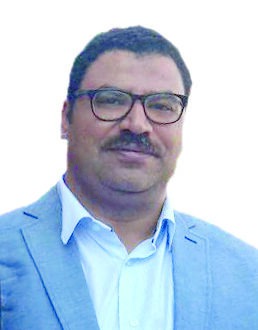THE year 2023 proved exceptionally challenging for humanitarian operations as the proliferation of conflicts worldwide and the resulting displacement of millions have pushed humanitarian agencies to their limits. The catastrophic situation in Gaza stands as a glaring example of the declining ability of these organisations to meet the needs of Palestinians in the face of the indifference of some world powers. As we enter 2024, the prospects seem no brighter. Funding is acutely short. More aid workers are being attacked as the UN seems less able to keep humanitarian missions safe.
Even before the eruption of the Gaza crisis, the world had had enough misery to surpass the available aid potential. From the shattered streets of Ukraine to the monsoon-drenched camps of South Sudan and from the earthquake-ravaged cities of Afghanistan to the hungry millions in Yemen, humanity is witnessing a relentless parade of suffering. Millions have been uprooted, their homes reduced to rubble, and their livelihoods swallowed by the maw of war and disaster.
According to Global Humanitarian Overview for 2024, issued by the UN Office for the Coordination of Humanitarian Affairs (OCHA), 300 million people will require humanitarian assistance next year due to conflict, climate emergency and economic factors.
The OCHA report found that 1 out of 5 children is living in or fleeing from conflict and 1 in 73 people are forcibly displaced — a ratio which has almost doubled in the past ten years and is far greater than at any other time since the beginning of the century.
Yet, despite the magnitude of these crises, world powers have failed to alleviate the suffering.
In Gaza, the international community lost the human compass. The Israeli atrocities were only met with tepid condemnations, while the genocide unfolded a gruesome spectacle. The once sacrosanct principle of «humanitarian access» became a casualty of political expediency, leaving the Palestinian people adrift in a sea of suffering.
Throughout the nearly three months of the current crisis in Gaza, humanitarian workers have struggled to navigate the treacherous landscape, their efforts hampered by dwindling resources and escalating attacks. Food assistance dwindled, medical supplies ran dry, and the infrastructure, already reeling from previous conflicts, crumbled under the strain.
The aid workers themselves became prime target for assaults, with more than 130 UN relief workers have been killed in Gaza since October 7 — more deaths than in any single conflict in the organisation’s 78-year history.
UN Under-Secretary-General for Humanitarian Affairs, Martin Griffiths described the death and destruction in Gaza as the worst situation he had seen in his entire career of 50 years, indicating that Gaza represents a special case for the lack of prospect as people are not given any chance to flee and the future for them is completely obscure.
However, this obscure future seems to apply to humanitarian efforts around the world too as the UN, the backbone of global humanitarian efforts, faces mounting challenges in securing and co-ordinating missions.
One of the most pressing challenges is the crippling lack of funding. Humanitarian organizations have grappled with financial strain for years, but in 2023, it reached a breaking point. The UN received only a third of the $57 billion requested for that year, highlighting the immense funding gap. And the outlook for 2024 isn›t much brighter.
The UN has appealed for $46 billion to assist millions across the globe but with donor fatigue setting in and government priorities shifting, meeting this target seems unlikely.
As we turn the corner into 2024, most forecasts paint a grim picture for humanitarian work. Acute funding shortages, escalating attacks on aid workers, and a weakening UN struggling to guarantee mission safety all converge to suggest a bleak future. However, this does not have to be inevitable. Urgent action by the international community can still reinvigorate humanitarian efforts, prioritise funding, and tackle the root causes of conflict that fuel this suffering.






Discussion about this post